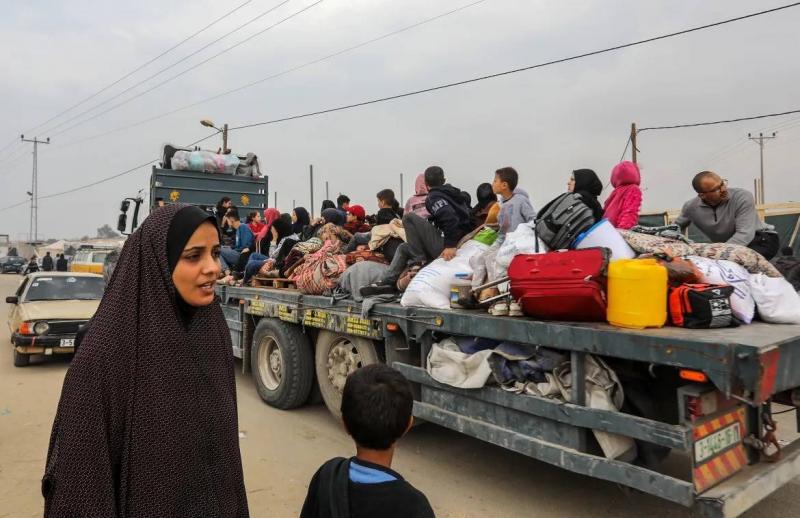As the exodus from Rafah, the southernmost city in the Gaza Strip, continues unabated since last Monday, Israeli forces have been reported firing at the displaced populations west of the city. Additionally, a house in the Absan area east of Khan Younis was bombed, resulting in the deaths of 8 individuals.
The United Nations Relief and Works Agency for Palestine Refugees in the Near East (UNRWA) announced today that the number of displaced individuals from Rafah has surged to 110,000 due to the intensification of Israeli bombardment in the city. UNRWA stated on its X platform account, "As Israeli bombardment on Rafah intensifies, forced displacement continues," adding, "Estimates indicate that about 110,000 people have fled Rafah seeking safety."
UNRWA also highlighted the grim reality that no place in the Gaza Strip is safe, commenting on the atrocious living conditions and underscoring that "the only hope is an immediate ceasefire."
Giorgos Petropoulos, the head of the United Nations Office for the Coordination of Humanitarian Affairs (OCHA), reported that approximately 30,000 people are fleeing the city daily. He elaborated that most of these individuals have been forced to move five or six times since the onset of the conflict between Israel and Hamas.
This exodus comes in the wake of reports that about 80,000 Palestinians have fled Rafah since the 6th of this month, with warnings that nowhere in the entire Strip is safe. The Israeli military spokesman, Mr. Avichai Adraee, had previously instructed those in certain areas of Rafah to head towards Khan Younis to avoid an imminent military operation and cautioned the displaced against returning northward or approaching the eastern and southern security fences, emphasizing that Gaza City remains a "dangerous battle zone."
The day following this announcement, the Israeli military declared full control over the Palestinian side of the Rafah crossing, which borders Egypt.
In the past three days, thousands have fled the city amidst chaotic scenes of evacuation marked by anxiety and panic as the roads out of Rafah filled with crowds either on foot or in vehicles crammed with belongings.
Humanitarian organizations have scrambled to aid those stranded seven months into the war, amidst previous warnings from various UN entities about the dire living conditions of Rafah's residents and the absence of safe havens within the whole Gaza Strip.
As Israel reiterates its intentions to invade the city to "eliminate Hamas," according to its claims, the situation in Gaza continues to deteriorate, leaving the international community in urgent need of facilitating peace and ensuring the safety of its civilians.



